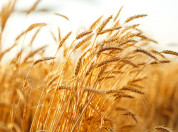Droevendaalsesteeg 10
6708 PB Wageningen
The Netherlands
Fascinated by the ability of plant-associated yeasts to protect wheat against the fungal pathogen Fusarium graminearum, and busy catching this cereal killer.
During my PhD and Postdoc, I am investigating the diversity, genomics, and ecology of plant-associated yeasts. I study how yeast functions, adaptive traits, and volatile metabolites contribute to biocontrol of Fusarium graminearum. My work integrates genomics, metabolomics, transcriptomics, and computational analyses to better understand and leverage microbial interactions in the phyllosphere for sustainable plant health.

